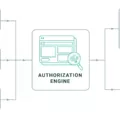When it comes to web servers, two of the most popular choices are IIS and Apache. Both of these web server solutions offer a variety of features and benefits, so how do you know which one is right for you? In this blog post, we’ll be taking a closer look at IIS vs Apache in order to help you make an informed decision.
One of the main differences between IIS and Apache is the operating system they run on. IIS is a proprietary system owned by Microsoft and runs on Windows Server, while Apache HTTP Server is an open-source system that can run on multiple operating systems, including Linux and macOS. If you need to run your website or application on a non-Windows platform, then Apache is the only option available. However, if you have Windows Server available then IIS may be the better choice since it integrates seamlessly with Windows and Microsoft offers excellent technical support for its products.
Security is another important factor when choosing between IIS vs Apache. In terms of security, Apache is widely recognized as the more secure option thanks to its robust configuration options that allow administrators to easily set up access controls and secure data transmission protocols. On the other hand, IIS may require more time and effort to properly configure security settings due to its limited configuration options.
IIS also offers fewer programming languages than Apache does; however, IIS’s native support for ASP .NET makes it an ideal choice for developers who want to create applications using Microsoft technologies such as .NET Core or ASP .NET Core MVC. And lastly, when it comes to management tasks such as running scripts or configuring web servers, both IIS and Apache offer similar capabilities; however, some tasks may be easier or more efficient in one platform than another depending on your needs.
it’s important to consider all of your options when selecting a web server solution for your website or application. While both IIS and Apache offer their own unique benefits, ultimately the best choice will depend on your individual needs and requirements such as operating system compatibility, security concerns, programming language support, and management tasks.

Comparing IIS and Apache Web Servers
The decision between IIS and Apache can be a difficult one, as both web servers offer a range of features and advantages. Ultimately, the best choice depends on your specific needs, budget, and other factors.
IIS (Internet Information Services) is Microsoft’s web server solution. It runs on Windows systems and is easy to set up and manage. IIS supports ASP.NET applications and provides integrated security features such as authentication and authorization. Additionally, IIS offers good scalability for large sites due to its caching capabilities.
Apache is an open-source web server that has been around since 1995. It is compatible with many operating systems, including Windows, Linux, Mac OS X, Solaris, and BSD. Apache supports multiple programming languages such as PHP, Perl, Python, Java Servlets/JSPs, and Ruby on Rails, among others. Furthermore, it offers robust security features like SSL/TLS encryption and IP address-based access control lists (ACL). Additionally, Apache can be easily customized via modules that allow you to add new features or tweak existing ones.
both IIS and Apache are powerful web servers with their own strengths and weaknesses that should be carefully considered when selecting the right solution for your needs.
Difference Between IIS and Apache
The main difference between IIS (Internet Information Services) and Apache is the software technology each uses. IIS is a Windows-based web server developed by Microsoft, while Apache is an open-source web server developed by the Apache Software Foundation.
IIS supports Windows-specific technologies such as ASP.NET, Microsoft Access, and Microsoft SQL Server, while Apache supports technologies such as PHP, Perl, and Python. IIS also offers more control over the server environment through its graphical user interface (GUI). With IIS, you can customize settings such as security settings, logging options, and website creation tools. In addition, IIS integrates with other Windows services such as Active Directory for authentication and authorization purposes.
Apache also offers a wide range of features including a powerful configuration system that enables administrators to customize their web server settings. However, it does not offer the same level of integration with other services as IIS does. Apache is known for its high performance and stability; it is often used in large-scale enterprise environments where reliable performance is essential. Additionally, due to its open-source nature, it provides developers with more flexibility than IIS in terms of customizing the web server environment.
Comparing the Security of IIS and Apache
Apache is generally considered to be the more secure option when compared to IIS. Apache supports a wide range of operating systems, while IIS is limited to Windows. Apache also has a more modular code structure that makes it easier to harden against attacks and patch security issues as they arise. Apache also has a long history of security updates that help keep it up-to-date with the latest security threats. For example, Apache has an extensive Security Vulnerability database and provides bugfix releases for any known vulnerabilities. Apache also has various authentication methods and other configuration options available, which can be used to further secure your server environment. In comparison, IIS does not have as many options available for configuring security settings and is more vulnerable to attack due to its Windows-only nature.
Can Apache Coexist With IIS?
No, Apache and IIS are two separate web server technologies that cannot be used together. Apache is an open-source web server technology developed by the Apache Software Foundation, while IIS (Internet Information Services) is a proprietary web server technology developed by Microsoft. They have different feature sets and are not compatible with one another. Each requires its own configuration and settings to run, so they cannot be used together on the same server.
The Benefits of Using IIS
IIS (Internet Information Services) is a powerful web server from Microsoft that can be used for hosting websites, web applications, and services. It is a secure, reliable, and easy-to-manage platform for deploying websites and services on the Windows operating system. IIS provides a variety of features that make it an ideal choice for businesses looking to host their websites or applications.
One of the main benefits of using IIS is its scalability. It can easily be scaled up or down depending on your needs and can handle high-traffic websites with ease. Additionally, IIS provides some great security features such as request filtering, dynamic IP blocking, SSL/TLS encryption, webpage compression, and FTP-specific security controls which ensure your website is safe from malicious attacks.
IIS also has excellent performance capabilities. It uses caching technologies such as HTTP Compression to reduce the amount of data sent over the network while still delivering high levels of performance. Furthermore, IIS offers support for a wide range of technologies including ASP .NET, PHP, HTML, and WCF so you have plenty of options when it comes to developing web applications or services.
Finally, IIS comes with an intuitive user interface that makes it easy for administrators to configure and manage their servers without any prior knowledge or experience in web server management. With all these features combined, it’s no surprise that more businesses are choosing to use IIS to host their websites or applications.
The Benefits of Using IIS
IIS (Internet Information Services) is a web server from Microsoft that allows users to host and deploy websites, web applications, and services. It provides powerful capabilities for creating secure and scalable web services, as well as reliable management tools for administering servers. IIS is a great choice for organizations looking for an easy-to-manage web server platform.
The biggest advantage of IIS is its security features. It has built-in authentication mechanisms such as Windows authentication and basic authentication to help protect against unauthorized access. Additionally, IIS supports the latest encryption protocols like TLS 1.2 to ensure data is kept secure while being transmitted over the Internet. Additionally, IIS can be configured to restrict access based on an IP addresses or domain names, allowing website administrators to control who can view their content or services.
IIS also offers excellent scalability options; you can easily add or remove resources when needed without interruption of service. This ensures that your applications can handle sudden spikes in traffic without crashing or slowing down due to a lack of resources. Additionally, IIS provides comprehensive monitoring tools which allow administrators to stay on top of their web server’s performance and health at all times. Finally, IIS utilizes an application pool architecture which allows multiple sites or applications to run independently from each other while sharing the same server resources – improving stability and performance in the process.
Comparing Apache to Other Web Servers
NGINX is often considered to be a better web server than Apache for scalability purposes. NGINX implements an event-driven architecture, which allows it to efficiently distribute client requests among multiple worker processes. This makes NGINX faster and more reliable than Apache for applications that require a high number of concurrent requests. Additionally, NGINX uses a much smaller memory footprint than Apache, meaning that it can serve more requests with less hardware. Finally, NGINX’s configuration is simpler and easier to manage than Apache’s, making it easier to use in a production environment.
Disadvantages of Apache Web Server
One of the main disadvantages of Apache Web server is related to security. Apache is an open-source web server, which means that anyone can access and modify its configuration. This makes it incredibly vulnerable to malicious attacks and exploitation, as a single misconfiguration could leave your website exposed to security threats. Additionally, if access to the httpd.conf main server config file is not managed properly, then users may be able to gain unauthorized access or change permissions without proper authorization. Proper monitoring and user management are essential when using Apache Web Server in order to ensure that these risks are minimized and that all security protocols are being followed.
Switching from IIS to Apache
Switching from IIS to Apache is a relatively straightforward process. First, you will need to locate and run srvdiag.exe in the directory ‘\Trend Micro\Security Server\PCCSRV.’ This will launch the WFBS Console Recovery Tool. Once the tool is open, click on ‘Check Web Server’ and if successful, the ‘Switch to Apache’ button should be enabled. Click on this and follow any additional instructions that appear on the screen. Once finished, you can open the Security Server Console to check if migrating from Apache to IIS was successful.
Does IIS Utilize SQL?
Yes, IIS Database Manager provides support for Microsoft SQL Server and MySQL. It is an extension of IIS Manager, allowing administrators to securely delegate database management to authorized local or remote users without having to open additional management ports on the server. With IIS Database Manager, you can create, configure, manage, backup, and monitor your databases. You can also set up user accounts with different levels of access privileges, as well as view and query data stored in the databases.
Conclusion
In conclusion, it is clear that both IIS and Apache have their own advantages and disadvantages. IIS is a proprietary system owned by Microsoft and is already integrated into Windows Server. It allows for easy management tasks to be performed but does not support non-Windows operating systems. On the other hand, Apache is an open-source system that is widely acknowledged as more secure than IIS, but may require additional technical support. Ultimately, the decision between the two web server systems will depend on the specific needs of your website or application and the available resources you have to support them.








